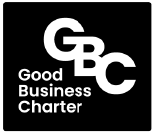Key Questions
- What is Modern Slavery?
- What are the different types of modern slavery?
- What is the impact of modern slavery on victims?
- Acting on concerns that someone is a victim of modern slavery
What is Modern Slavery?
Modern slavery is a serious and often hidden crime where people are exploited by criminals, usually to make money. It includes trafficking, slavery and forced labour.
In all types of modern slavery, a victim is, or is intended to be used, or exploited for someone else’s gain, with no consideration for their human rights.
Adult victims are usually forced into modern slavery through threats, force, deception or by someone abusing their position of power over them.
Modern slavery can be difficult to spot, and this means it often goes unreported.
Modern slavery is an adult safeguarding concern, and the local authority has legal duties to provide support to suspected or known victims.
Under the Modern Slavery Act 2015, criminals convicted of modern slavery crimes can receive sentences of up to life imprisonment.
What are the different types of modern slavery?
There are two main types of modern slavery: 1) human trafficking and 2) slavery and forced or compulsory labour.
Human trafficking is where a victim is forced or tricked into a situation where they are then exploited. It often involves people being moved for the purpose of exploitation, this can be between towns and cities or from another country into the UK.
Ways in which trafficking victims are exploited include:
- sexual exploitation: victims are often raped or physically assaulted. They are often tricked and given false promises of good jobs.
- forced labour: victims have to work for little or no pay, and their employers will not let them leave or find another job. Common work environments include manufacturing, food preparation and processing, farming, nail bars, the care sector and hand car washes.
- criminal exploitation: victims are forced to commit crimes such as pick pocketing, shoplifting, begging, growing cannabis, trafficking drugs (known as county lines), benefit fraud and sham marriages.
- domestic servitude: victims work in a household where they may be ill-treated, humiliated, made to work long and tiring hours and forced to work and live in very difficult conditions for little or no pay.
In cases of slavery and forced or compulsory labour, victims are not trafficked or moved from one area to the other for the purposes of exploitation but can still be victims of modern slavery. Slavery and forced labour are illegal in the UK.
What is the impact of modern slavery on victims?
Victims of modern slavery often feel very scared and helpless, as they are under the control of their exploiters and cannot go where they want. They have to live, work and behave as the exploiters say, they cannot keep any money they may earn, contact their families and friends and or make any decisions themselves. They may experience physical, psychological and sexual abuse and neglect.
The impact of these experiences can be devastating.
Acting on concerns that someone is a victim of modern slavery
If you think the person is in immediate danger, always contact the police on 999.
If they are not in immediate danger, you can contact the police on 101 or ring the Modern Slavery helpline for advice on 0800 0121 700.
You can also ask for advice from your designated safeguarding adults lead in your service, the local authority safeguarding adults team, the police public protection unit (contactable via the local Police switchboard) or visit the Modern Slavery Helpline website.





